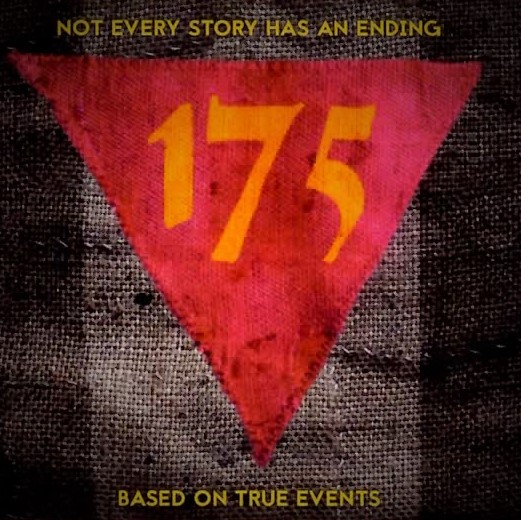Lorn Films, a local film production company, is hosting an intimate live performance of their screenplay “175” to gain exposure for a script many years in the making, highlighting the cruelty gay men faced in Nazi Germany.
The focus group performance will be at the Hacienda Ruan restaurant on June 18 in Long Beach.
Since the company’s founding in 2015, their mission has been to give a voice to the voiceless. They aim to tell stories of significant human impact that might be overlooked by the film industry for not being box office material.
“You always have to be aware and be proactive for people’s rights,” said Bob Wilkins, the film’s publicist. “And that’s all people’s rights.”
Lorn Films’ script is based on survivors victimized by paragraph 175 of German law. The law, beginning in May 1871, prohibited homosexual activity between males and wasn’t lifted until March 1994. 140,000 men have been convicted due to this law, and when the third reich was in power, men were sent into the concentration camps – or immediately killed.
The film focuses on a particular story based on true events, in which Edward, a gay German man (played by Windham Beacham), was imprisoned under Nazi law after witnessing his partner’s shooting.
He then created a bond with a Jewish woman named Lina (played by Danna Jones) in the concentration camps that gave them both the strength to make it through.
“It’s great story,” Wilkins said. “And now it’s more germane than ever after Orlando.”
Once they were both liberated and Lina moved to America, Edward was rearrested which forced Lina to make the difficult choice to return to Germany.
“There’s some really horrific scenes when the Nazis take over,” Wilkins said. “They burn down one of these guys’ galleries and then shoot him in the middle of the street, in front of his partner.”
Yael Deynes, cofounder of Lorn Films and writer of “175,” has been working on the script since 2004. He sought out 12 of the surviving men put into camps under paragraph 175, though only seven would speak with him due to fear of persecution, even though the law has been lifted.
Like the protagonist Edward, many were sent back into prison to serve a full sentence after the Hitler regime had ended, regardless of their previous time spent in the camps.
The script is a combination of personal stories from the seven men who spoke with Deynes.
“What a lot of people don’t know is that in 1933 there were over 100 gay bars and gay magazines. Within a week of Hitler taking power, all of the night clubs and publications were closed,” Deynes said. “Within a month of him taking power, over 100,000 gay men disappeared… and the mortality rate for gay men in concentration camps was over 60 percent.”
The focus group for “175” will consist of only 30 people, including a potential director, two possible producers and other investors. Lorn is looking for 15 to 20 million dollars in funding, “So we can actually do a good film right, and give these people the justice they deserve,” Deynes said.
Right now the run-time is about an hour and 15 minutes, while they continue to tweak the script.
“It’s in its infancy at this point in time, but from what I see they almost have the finished product,” Wilkins said. “It’s very powerful, it kind of haunted me. I was walking around thinking about it a great deal because it has so many traumatic moments in it; betrayal and redemption, you know, everything you would want.”
Alongside the film industry members attending the focus group on Saturday will be representatives from the Museum of Latin American Arts and Art Theatre of Long Beach, in hopes of securing the cast for performances at the two venues in the next couple months – which seat far larger crowds than Hacienda Ruan.
“My main focus of why I started doing this was not because of myself,” Deynes said. “It was because these people were forcibly silent because of who they were, we have become their voice in a way and we just want their stories to be told.”
Deynes conversations with the survivors still resonate with him.
“One of the victims said to me, the only thing we want is justice, we just want our stories to be told, we just want you to have a better future than the paths that were forced through our door,” Deynes said. “They just wanted the world to know that they just wanted us to have a better future, and after what happened in Orlando it’s been a couple of really tough days.”
The actors and everyone involved are working pro bono because they are so passionate about the people and what they went through, Deynes said. “That, to me, was the most amazing thing.”
The cast knew that issues surrounding the LGBT community were important, but now there is a whole new call to arms, after the worst mass shooting this nation’s ever know.
[After] the Orlando thing happened. It went straight to your heart, straight to your soul,” Wilkins said. “It was important before but now I think exceedingly so. I feel like all the members feel like they’re really apart of something bigger than themselves.”
Now more than ever this is an issue that should be pushed to the forefront, and incite activity in the fight against intolerance.
“[Orlando] reinforced the need to tell these stories,” Deynes said. “I’m speaking for myself now, but if these stories had been told years ago, maybe these things would never happen.”




